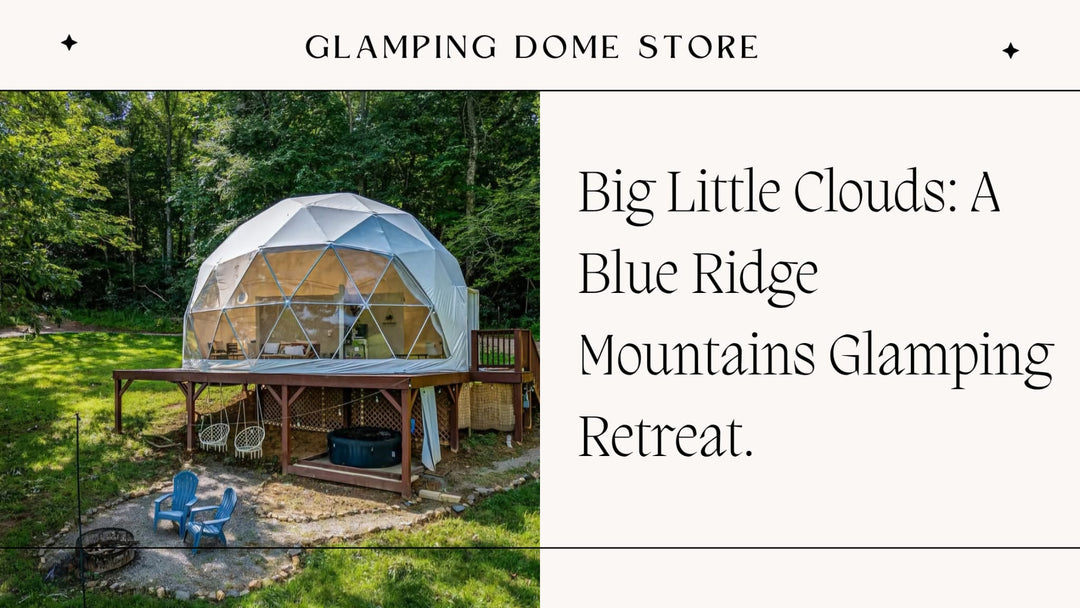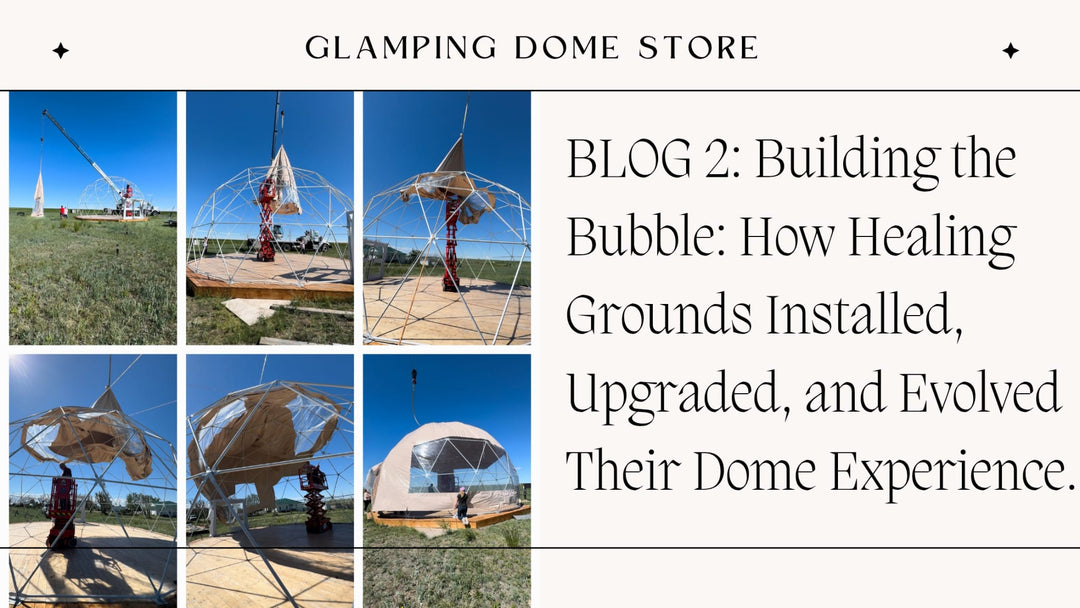An introduction to the essential permits and approvals needed to start your glamping business.
Permitting for Glamping Site: PART I.
Just imagine that you have acquired a piece of land in a beautiful natural area with access to mountains, forests, or a beach. And have you ever dreamt of running your own glamping business on that land with a few dome structures, A-frames, tiny cabins, or bell tents? Have you reflected on how the business will look, how much the rent will be, how much time it will take to run, and what kind of profits and lifestyle you could have running the business? But did you ever think about the legal aspect of the business? Or, in other words, how to make this all legal with permits and zoning? This must be Step #1 in your journey to own a glamping business.
In this blog, we will go into details on the zoning and permit process and what it takes to successfully acquire land and make it possible.

We think we should start from the very important topic - what your zoning inspector will be looking for. There is no simple answer, as all municipal and county district requirements will be a bit different. Zoning is not like federal law, which is the same for everybody. It may vary a little or a lot from one place to another. Names and definitions may be the same, but details could be different.
The key to understanding the zoning in your county is to start speaking and understanding the language of the zoning ordinance: what you may call a short-term rental may be called a campground, what you call a commercial dwelling unit is called commercial use, etc.
At the very start of planning the glamping business, right after you settle on the location, you need to clearly understand what it is that you are going to do.
Plan your structure type: container, A-frame, yurt, dome, airstream, tiny house, or other. Then, go to the zoning ordinance of that county or municipality and read through the definitions and allowed uses to figure out what this is called that you are going to do. You have to know the exact term to call your business in the world of zoning. It may be completely different from what you have been calling it, like a campground or a vocational ground.
Then, once you've decided on a name, you want to read about its allowed uses. It can be:
(a) By right: You're just allowed to do it; or
(b) Conditional: You need to comply with a few requirements; or
(c) Special or conditional use: You need to apply for and get a conditional or special use permit.
So, to reiterate, before you commit to or buy a piece of property, find out what the local zoning ordinance will call your business and what uses are permitted for that exact location! This may save you a lot of time and money.
If you do not complete this step, you may be forced to change your zoning in order to carry out your glamping plan or apply for a variance. And these processes are almost never easy and cheap.
But if you already own the land or just fell in love with a particular property and are ready to do whatever it takes, you can still make it work. It will just need more time and more money to comply with all the conditions and permits.

Here is a good time to talk about variances in permits. Sometimes the situation is already too far gone to turn around: the land is purchased, the platforms for the accommodations are half built, and the inspector hands you a violation notice simply because this type of use is not allowed on the property. You can try to get what is called a variance for this land use. It will most likely not be easy, as you may need to meet certain requirements, be cheap, or happen quickly, but it is possible.
You may also try to qualify the project as something else that is allowed on this land. You may have to change the structure type or make a foundation that meets local building codes . Usually, there is a way around it... This is a case where a land consultant can be very helpful (We will talk about them soon). It can be very expensive and can be compared to hiring a lawyer for a court case. Application fees, depending on the location, can be in the thousands of dollars and progressively go up with the difficulty of the case. Engineering part of the variance can also be expensive.
But the more time you are willing to invest in figuring out the legal parts of the process of receiving a variance or qualifying for some other use, the more money you may save. All the processes and actions are meant to be done by the general public. You will have to change and think about this as a developer and entrepreneur.
You need to understand:
- that there is nobody in the county that will be assigned to you and solve all your problems;
- glamping is a new thing, and there may not even be a legal framework yet for what you plan to do on the land;
- there may be multiple people at the county looking at your business from different perspectives of their department, the information may be contradictory ;
- their job is to be the authority and administer the ordinance system, not facilitate your project.
You have to become your own advocate at this point.
A few pieces of advice in the case of getting a variance or qualifying for something else:
- Keep a record of all communications; use email instead of phone calls.
- Let county clerk be your first contact, as they may be able to steer you in the right direction.
- Be willing and ready to conduct research and learn the fundamentals of the ordinance system before making your first contact; speak the language.
Just remember that the clerks may not understand the whole extent of your business idea or simply be wrong. There is no legal liability for them if they tell you the wrong thing. So be critical and use your own judgement when you take advice from public servers. At this point, this is free advice and a free service that they give you, so you must do your own due diligence and check before you act on this information.

Finally, we like to say few words on professional planners or firms that may help you to get answers and make things happen in zoning and permitting. They may be called land consultants or planners. Do you really need to hire them? The short answer is no, you do not have to hire or pay for the services. All the processes are meant to be done by the general public. However, as with accounting or lawyer services, many people choose to use planners, especially those who believe they may not be able to do it as efficiently or properly themselves.
And the more remote and rural the area where you have your land, the more complicated your search and quest for answers may be to determine if the land is legal for short-term rental or a campground.
Depending on your particular situation, you have to decide whether to hire a professional for this or not. Remember that zoning is a section of law, and while the law looks very black and white on paper, it is, as we all know, subject to interpretation, or looking at things from different perspectives.
Want to learn fine details about the business side of Tiny Homes, Glamping, Domes, Tents, and everything in between?.. We recommend @keepittiny.media on Instagram or visit the website - www.keepittinymedia.com
(to be continued...)




